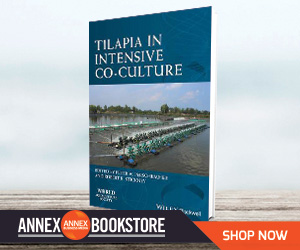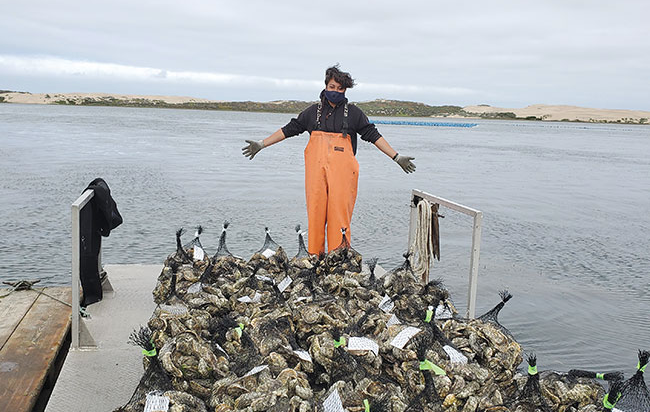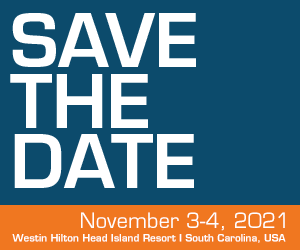| |
| |
 |
 |
| |
 |
|
@{mv_date_MMM d, yyyy}@ |
|
| |
 A new report by Ottawa-based economics consulting firm, RIAS Inc., says that the salmon farming industry in British Columbia could be the key to the province’s post-pandemic economy.
» Read more
A new report by Ottawa-based economics consulting firm, RIAS Inc., says that the salmon farming industry in British Columbia could be the key to the province’s post-pandemic economy.
» Read more
Fish farms in the Discovery Islands in British Columbia pose “minimal risk” to Fraser River sockeye salmon, according the latest scientific studies from Fisheries and Oceans Canada.
» Read more
As the impact of the COVID-19 pandemic rippled through the foodservice industry, Hudson Valley Fisheries’ John Ng decided to sell his steelhead trout online, but not without initial hesitation.
» Read more
|
| |
|
| |

Intensive tilapia co-culture is the commercial production of various species of tilapia in conjunction with one or more other marketable species. Tilapia are attractive as a co-cultured fish because of their potential to improve water quality, especially in penaeid shrimp ponds, by consuming plankton and detritus and by altering pathogenic bacterial populations while increasing marketable production.
Tilapia in Intensive Co-Culture is the latest book in the prestigious World Aquaculture Society (WAS) Series. It will be of great use and interest to researchers, producers, investors and policy makers considering tilapia co-culture in terms of environmental and economic sustainability.
>> Learn more |
| |
|
| |
 After weary and exhausted 2020 collects its memories and shuffles out the door, some of America’s oyster farmers recall the year’s challenges and raise their glasses to bright resolves for the New Year. Julia Hollister reports.
» Read more
After weary and exhausted 2020 collects its memories and shuffles out the door, some of America’s oyster farmers recall the year’s challenges and raise their glasses to bright resolves for the New Year. Julia Hollister reports.
» Read more |
| |
 One of British Columbia’s recirculating aquaculture system pioneers is ready to take its model farm on the road.
» Read more
One of British Columbia’s recirculating aquaculture system pioneers is ready to take its model farm on the road.
» Read more |
| |
 |
 |
| |
|
| |

|
| |
|
| |

|
| |
| |










